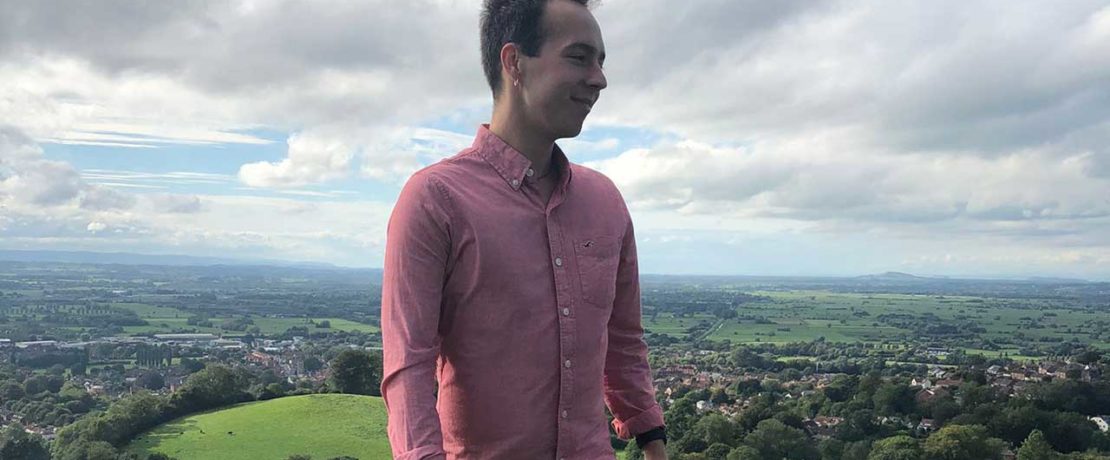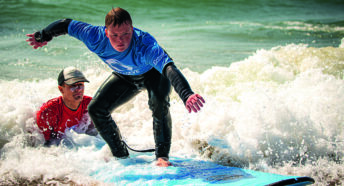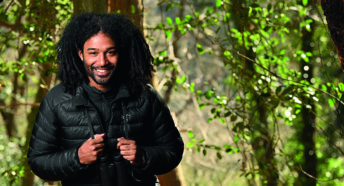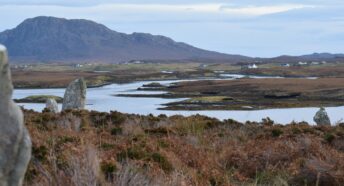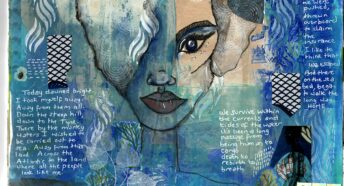Make yourself a(t) home: finding queer identity in the countryside
Joe Jukes on what moving back home to rural Somerset has taught them about the places they thought they knew.
No one likes going to the dentist’s, and I’d been putting it off for three years now. This appointment coincided with a visit home, a temperature check, ahead of me moving back to rural Somerset full-time.
The receptionist knows my Mum from school.
A young white woman enters the waiting room, announces her name at reception and sits across the aisle from me. I repeat her name aloud and she turns to meet my gaze – I went to school with her.
Sarah (names have been changed) and I were due to be married. It was an agreement we made at the age of five or six. I drew up an illustrated guide of what the ceremony might look like, vows and all.
She tells me now that she’s just moved back to the area and that her wedding is in a few months’ time. She spent time working in London, like me, and is excited to settle down here, unlike me.
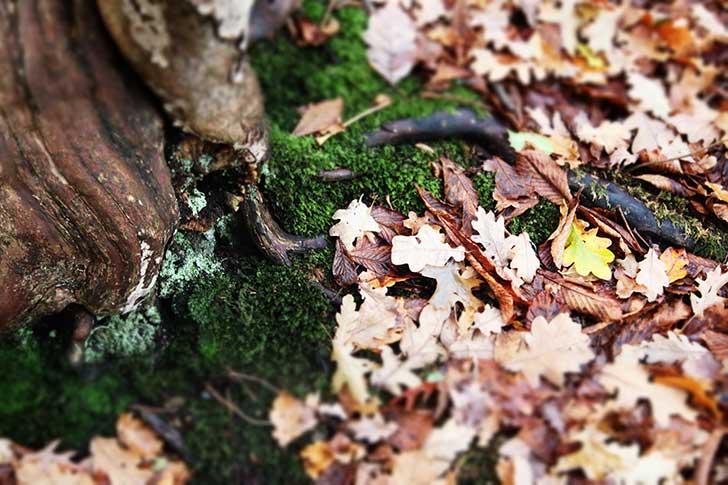
I’m happy for Sarah. She has roots here, deep and strong enough to bring her back and ground her in the community that raised her. The future seems humble and happy and she’s been able to choose when, where and how to start a family. I’m not sure I’d choose it myself. Perhaps my roots are too shallow.
The valleys of North East Somerset and the Levels are familiar to me, to be sure – we’ve always lived in the West Country. Rolling hills and scattered showers feel as much like family to me as second- or third-cousins: we go way back.
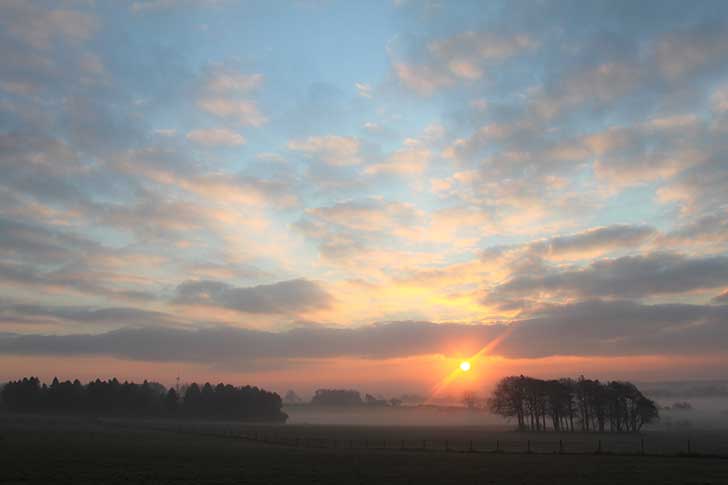
Moving backwards can be tricky; it makes you feel travel sick. Family can be a tricky concept too, especially for queer people. For me, it was only by leaving Somerset, and moving to an unfamiliar university town that I was able to understand myself and my sexuality in a positive light.
It was there, and the cities I’ve lived in since graduating, that I’ve been able to re-define what family can mean to me. I’ve learnt that family isn’t just inherited or generational, but that it can be chosen, cobbled together and improvised too.
So moving back home can be tricky, especially when you don’t feel ‘at home’ at home. I can’t count the amount of queer people I’ve met in London, Brighton and abroad who have told me they wouldn’t or couldn’t ‘go back’ to the communities they’ve left.
Tradition, the church, and even school can permeate rural communities in ways that make many feel included: an old friend’s Dad did my brother’s MOT this year. Yet, folded into the fabric of rural life can be a quiet upholding of phobic or conservative values when it comes to gender, sexuality and ethnicity, which leaves a lasting impression on the queer people who chose to leave.
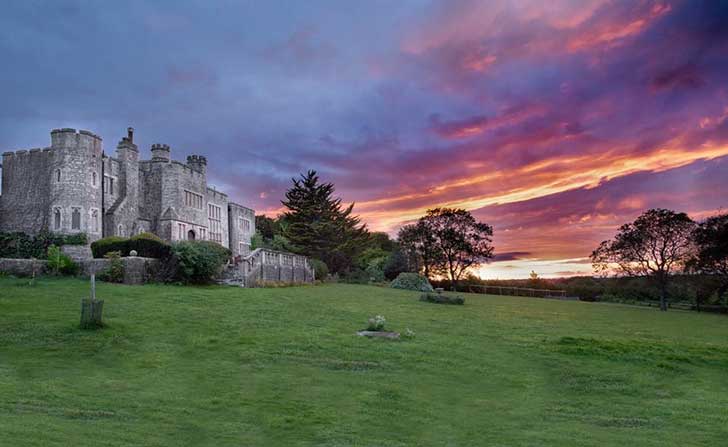
Not every queer or LGBT+ person in the countryside chooses to or even wants to leave. Many make their homes here, and others, like me, are trying to find their way back. I’ve been surprised at the spaces in which I’ve felt ‘at home’
I felt at home drawing Tarot cards at a queer circle, just off the Bath Road. Established as a safe space for queer people to come together on our own terms, no one gets my pronouns wrong at the Priory, and I’m warmed by the fire and hospitality.
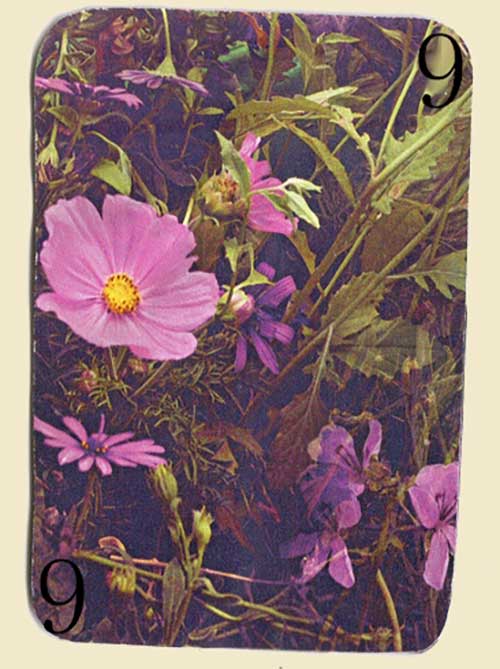
It felt homely making the 80 mile round-trip to visit the Somerset Lesbian Network. Careering through the Levels makes it clear to me how far I’ll go be around like-minded people, my ‘other’ community: the queers I haven’t even met yet.
There’s a certain effort required to build community, and the other women in attendance, for whom this network exists, know that just as well as I (half of them were designated drivers too).
On a Facebook group for LGBTQ Community in Somerset, I was deeply moved to see so many rally around a member struggling with suicidal ideation.
The countryside can be a place of isolation for many, and for rural queer people this is especially so, but to see comments and conversations spark up online in this way, I’m reminded that living rural can’t stop people looking after each other. That’s what family’s for, after all.
Just as nourishing was whooping and finger-wagging as a Venezuelan drag queen lip syncs en Espanol to an adoring Glastonbury crowd about two-dozen strong. A throbbing London nightclub it isn’t, but Lavender Vespers, an evening of ‘queer talent and gentle debauchery’, provides a good measure of laughter and light at midwinter.
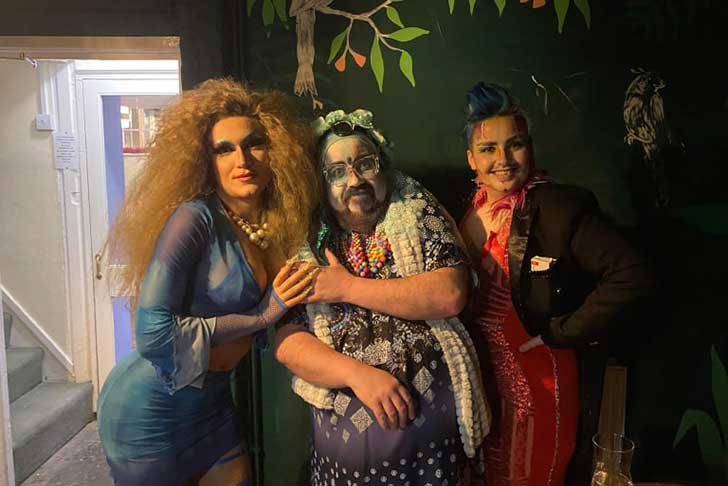
Gentleness, commitment, support and joy – all these things and more found in little queer corners of the county. Humble events that boast diversity, assure discretion, deserve celebration, and where pronouns, names, and genders are respected. How then, can I say that the countryside is no place for the likes of me? Somerset is a place for us all, exactly because of the people who, by bringing people together, make it so.
If these are the moments at which I feel most giddy here in Somerset, it’s surely because ‘home’ isn’t just a particular place that one ‘has’ or ‘hasn’t’. Home is the things we do together.
In this sense, I might not feel like I’ve put down deep roots here, but my roots run far and wide. They run across the Levels, over the Mendips and up to Bristol. On their way, they criss-cross with the roots of other queer people and our community blooms.
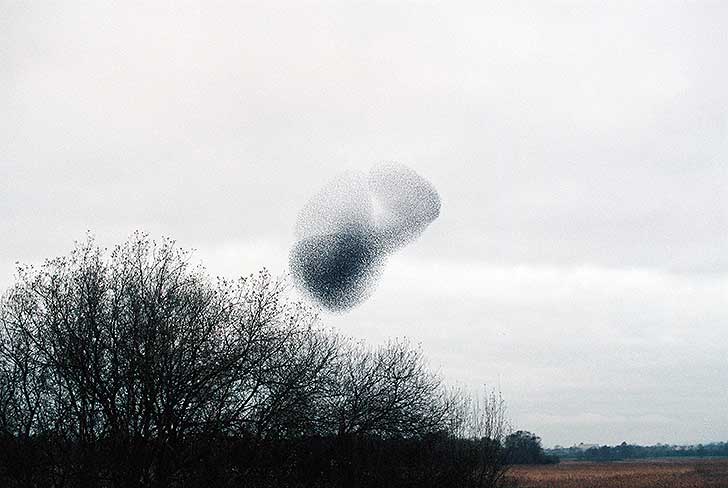
I’ve had the pleasure of getting to know many wonderful LGBT+ people since moving to Somerset, but most of all, I’ve also got to know myself and my ‘home’ in a new way. I don’t feel as if I’ve had to give up my queerness in leaving the city – instead, I’ve been finding a whole new way to engage with it, through the queer lives that have blossomed here before me, and will do so after me too.
Together, we reclaim that word ‘queer’ and prove that we can flourish in the countryside, but we also work to grow a more open, loving countryside from the roots up.
Joe Jukes is a PhD candidate at the University of Brighton researching rural queer experiences.
